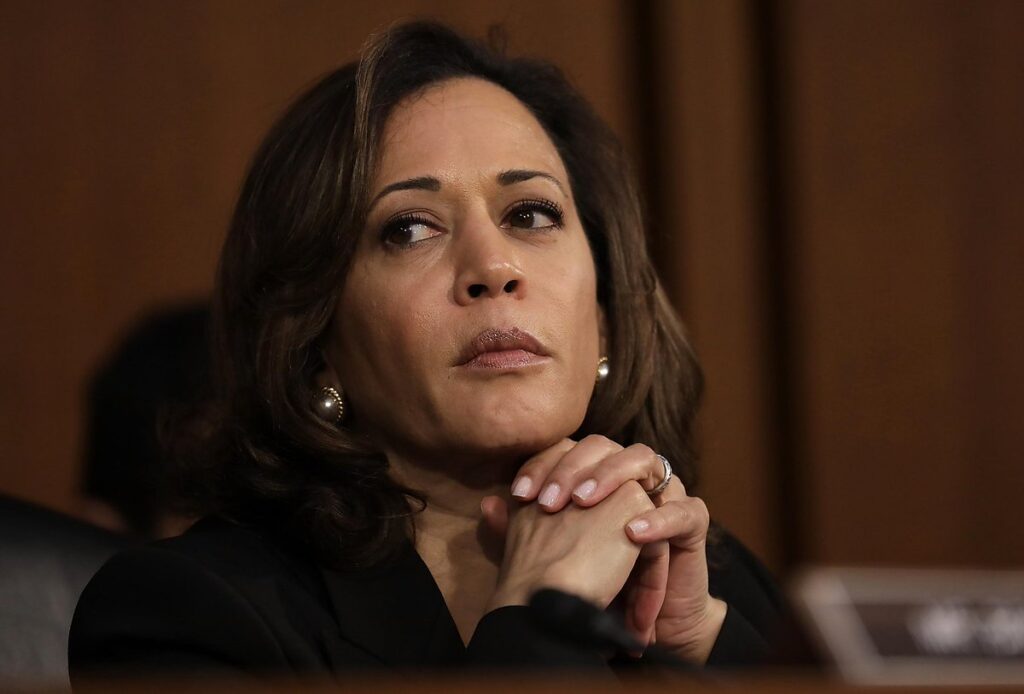As political tensions escalate, a provocative book has resurfaced, shedding a harsh light on Vice President Kamala Harris at a crucial moment for Democratic unity. “The Truce: Progressives, Centrists, and the Future of the Democratic Party,” by journalists Hunter Walker and Luppe B. Luppen, delves into the internal strife within the Democratic Party, now casting a critical eye on Harris.
Released with little fanfare in January, the book initially garnered scant attention outside Washington circles. However, with the 2024 presidential race heating up and Harris facing a strong challenge from former President Donald Trump, “The Truce” has gained renewed prominence. The timing is particularly problematic for Harris, as the book portrays her as overly reliant on personal charisma and lacking a clear political agenda.
Walker and Luppen’s account reveals a troubling portrait of Harris’s leadership style, based on interviews with former aides and close associates. The book details how Harris has struggled to present a coherent agenda, frequently depending on her personal charm rather than a clear policy framework. This approach, according to sources, has left her staff feeling directionless and her policy initiatives lacking in substance.
A former senior staff member of her 2020 campaign team expressed strong reservations about her suitability for the presidency. “It was rotten from the start,” the aide remarked. “A lot of us, at least folks that I was friends with on the campaign, all realized that: ‘Yeah, this person should not be president of the United States,’” the source revealed to the authors.
The book also underscores a deeper rift within the Democratic Party, a conflict that predates Harris’s rise but has become more pronounced under her potential presidency. The book details the intensifying struggle between the party’s progressive wing and its centrist establishment, each faction vying to shape the party’s future. The internal strife, according to the authors, threatens the Democrats’ ability to present a unified front against Trump. The campaign team, in particular, faced significant dysfunction, largely attributed to the strained relationship between Maya Harris, the campaign chair and Harris’s sister, and Juan Rodriguez of Bearstars Strategies, the campaign manager.
When Harris left the primary race in December 2019, she cited a lack of funds as the primary reason for her withdrawal. However, the authors highlight that financial issues were just a part of a broader “toxic climate” within the campaign. “It was the most awkward day of my life,” a senior staffer recounted to the authors. “People were literally having a thirty-minute audit meeting with Juan about how the campaign was going and then they were walking across the hall into the same meeting with Maya … I remember Juan popping into my office to find out how the meeting with Maya went.”
In November 2019, Kelly Mehlenbacher, the state operations manager for the campaign, stepped down, expressing her dissatisfaction in a harsh resignation letter that subsequently was ‘obtained’ by The New York Times. “This is my third presidential campaign and I have never seen an organization treat its staff so poorly,” Mehlenbacher stated in the letter. She further criticized the campaign’s internal culture: “… because we have refused to confront our mistakes, foster an environment of critical thinking and honest feedback, or trust the expertise of talented staff, we find ourselves making the same unforced errors over and over.”
The book also speculates about the future leadership of the Democratic Party after Biden and Sanders, suggesting that the next generation of leaders will inherit a party at a critical juncture. With economic and social justice issues competing for prominence, the challenge of crafting a coherent agenda that resonates with a wide range of American voters looms large.
For Harris, the book’s harsh assessment could undermine her credibility and leadership at a time when the Democratic base is seeking strength and unity. Her ability to counter Trump’s persistent campaigning and his strong grip on the Republican base may hinge on her capacity to address the criticisms detailed in the book and unite her party behind her.



